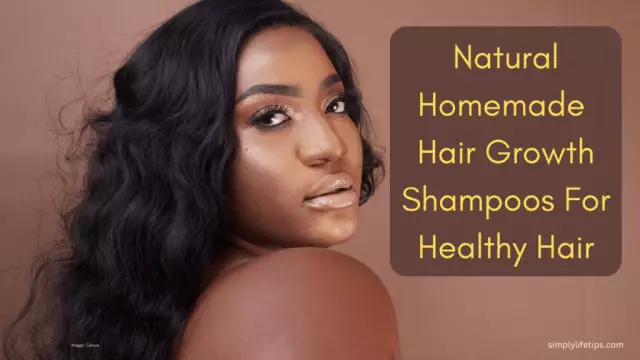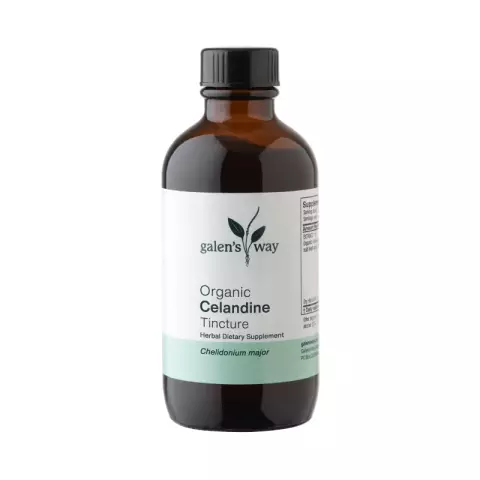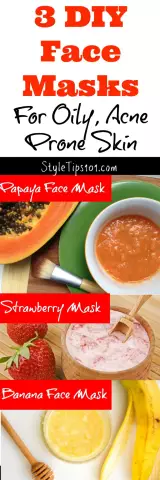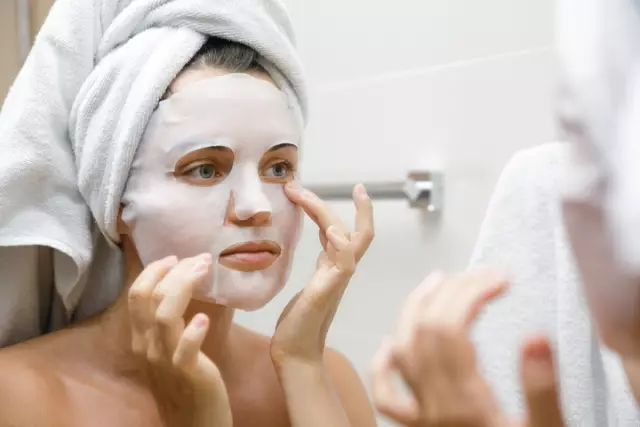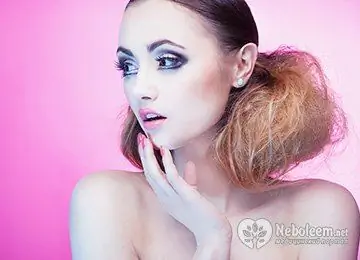- Author Rachel Wainwright wainwright@abchealthonline.com.
- Public 2023-12-15 07:39.
- Last modified 2025-11-02 20:14.
Homemade natural shampoos for problem hair: 12 recipes
Many people are unhappy with the condition of their hair. Excessive oiliness or dryness, brittleness, lack of shine or insufficient volume are very common problems. As a rule, they prefer to fight them with the help of widely advertised shampoos and masks. Unfortunately, despite the rather high cost, such funds are often far from being as effective as manufacturers claim. This does not mean that all such tools are useless. Rather, in each case, their weak effect is associated with the individual characteristics of the user's hair.

Source: depositphotos.com
If this is the case, it's time to remember the folk ways to improve hair health and try home-made shampoos, the medicinal properties of which have been confirmed by centuries of practice, and the cost is low.
Banana and lemon
The mixture is prepared from half a peeled banana, the juice of half a lemon and egg yolk. Combine the ingredients, thoroughly grind until smooth and whisk lightly. This shampoo is suitable for all hair and is quite suitable for frequent use.
Mustard
A tablespoon of dry mustard powder is diluted in 2 liters of warm water. Periodically washing your head with such a solution, you can normalize the condition of oily hair and significantly improve the functioning of the sebaceous glands of the scalp.
Egg yolk
The recipe has been known for a long time and is extremely simple. You need to rub the egg yolk into slightly damp hair for a few minutes, and then rinse it with warm water.
This method of washing not only makes the hair healthy and shiny, but also improves the blood supply to the scalp. For dry and brittle hair, add a teaspoon of olive oil to the yolk.
Tansy
You can pick and dry tansy flowers yourself or buy them at the pharmacy. To prepare a healing solution, a tablespoon of plant materials is poured with 2 cups of boiling water and insisted for 2 hours. Then the mixture is filtered, squeezing out the grass.
Infusion of tansy flowers is a well-known remedy for dandruff. In the absence of individual intolerance, it can be used to rinse your hair every two days.
Nettle
Nettle decoction has long been used to make hair shine and splendid. The tool is prepared as follows: 100 g of raw materials (dried or fresh) are poured into 1 liter of warm water, a glass of 9% vinegar is added and the mixture is boiled over low heat for half an hour. The strained broth is used as a shampoo.
Spoiled milk
The use of sour milk, yogurt, kefir or milk whey for shampooing came to us from countries with arid climates, whose inhabitants are forced to protect their hair from exposure to high temperatures and dust. The fact is that fermented milk products envelop each hair with a thin film, which protects it from aggressive environmental factors.
This product strengthens hair well, heals the scalp and regulates the sebaceous glands. It is enough to apply any of the fermented milk products to the hair for half an hour, and then rinse with water with the addition of lemon juice to eliminate the specific smell.
Potato starch
To cleanse the head, rub starch powder into the hair, gently beating it for 10 minutes. Then the head is thoroughly wiped with a dry towel and the starch remains are combed out with a brush.
An effective method of "dry washing" while reducing the oiliness of the skin and hair.
Rye bread
Periodic shampooing with rye bread provides excellent results: hair becomes noticeably thicker and more manageable.
To prepare the product, half a loaf is soaked in hot water and rubbed through a sieve. The shampoo should look like a liquid homogeneous porridge. It is applied to the hair, rubbed into the scalp, kept for 10 minutes and washed off with warm water.
Beer and herbs
Hop cones, chopped burdock root, calendula flowers and birch leaves must be combined in equal proportions, pour 50-100 ml of pre-heated light beer with herbs, leave for 5-10 minutes and strain.
The solution is applied to slightly damp hair, wait half an hour and rinse with warm water. The product has a bactericidal effect, strengthens the hair roots and activates their growth, tones the scalp.

Source: depositphotos.com
Carrot juice
A mixture of 2 yolks and a tablespoon of carrot juice (preferably homemade) is lightly whipped and massaged onto damp hair. After 5-7 minutes, rinse them with warm water.
The product is well suited for hair that is weakened or damaged due to the use of chemical dyes or other external factors.
White clay
To strengthen the hair roots, use white clay, which can be purchased at the pharmacy. It is diluted in warm water to the consistency of liquid sour cream and applied to the hair and scalp, gently massaging them. After a few minutes, the product is washed off with warm water.
Food gelatin
A tablespoon of gelatin must be poured with water and left for half an hour to swell. Then the mixture should be slightly heated in a water bath so that the gelatin is completely dissolved, cooled to room temperature and combined with egg yolk. The product is applied to damp hair for 10 minutes, and then rinsed thoroughly with warm water. This mask makes the hair look voluminous and the hair manageable.
Homemade shampoos and masks are prepared right before use, they cannot be stored. And yet any homemade hair product is easy to "refine" by adding a few drops of essential oil to it. This will not only enhance the healing effect, but also give your hair a lasting scent.
However, products made on the basis of food products or medicinal plants can cause individual intolerance. People with a tendency to allergies should be careful when using these products.
YouTube video related to the article:

Maria Kulkes Medical journalist About the author
Education: First Moscow State Medical University named after I. M. Sechenov, specialty "General Medicine".
Found a mistake in the text? Select it and press Ctrl + Enter.

